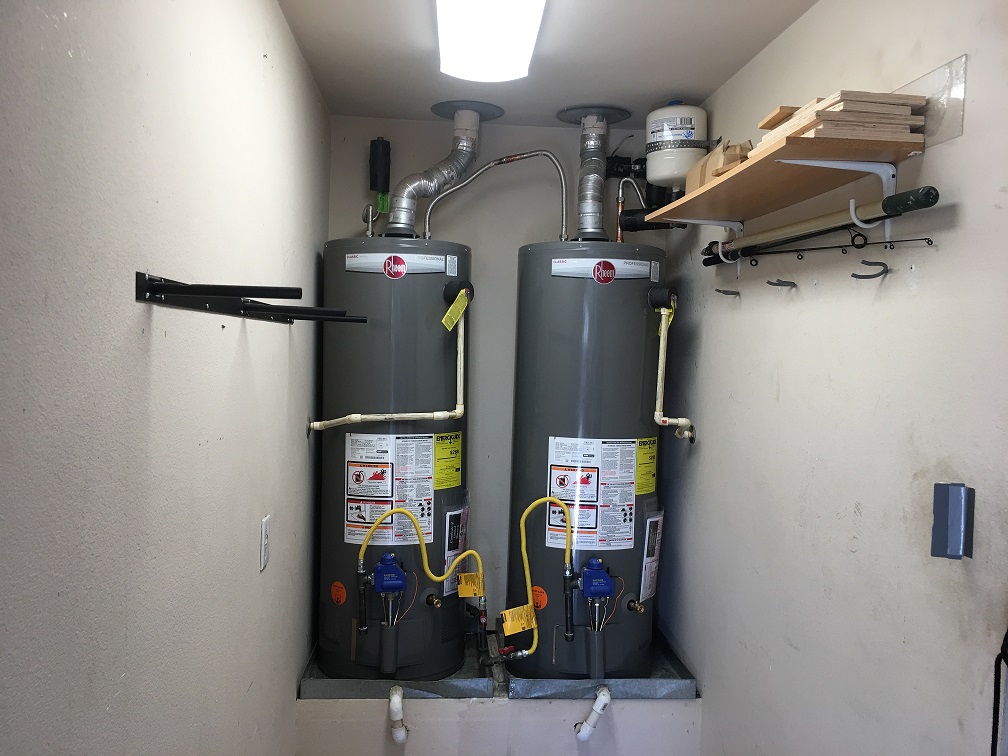
When you turn on a faucet, you want to see crystal clear water that looks like it came straight from a mountain stream. Unfortunately, that is not always the case. If you have rusty water, what comes out of your faucet might be yellow, brown, or red and accompanied by a foul smell.
Rusty tap water is a fairly common problem and can have several causes. It not only looks and smells bad, but it can also stain dishes, surfaces, fixtures, and clothes. In this blog post, Bewley Plumbing details some causes of rusty tap water and how you can fix them.
If you have rusty tap water, it is always best to get a professional to fix it. Read on to find out why.
What are the Causes of Rusty Tap Water?
Rusty tap water can have multiple causes and finding its source can be tricky. It can originate from inside your home’s plumbing or even your town or city’s water supply. Because of this, it’s important to connect with a professional to help fix it.
Bacterial Growth
Iron-reducing bacteria in a water distribution system can cause hot water to be rusty. It is common in water distribution systems such as a water tank or pipes.
Water Heater Corrosion

If only your hot water is rusty, you may be dealing with water heater corrosion, which is often caused by sediment buildup. Sediment buildup can cause problems far beyond rusty tap water, such as increased hot water tank pressure—one of the potential causes of water heater explosions.
Water heaters contain an interior glass lining in the tank as well as a sacrificial anode rod to prevent rust. While the sacrificial anode rod can last three to four years before it wears out, once it is worn out, it will need to be replaced. A bad sacrificial anode rod can cause an explosion due to the buildup of rust and sediment. And if your water heater is rusty, rust can make its way into your water supply. For these reasons, water heaters must get regular maintenance to ensure they continue working properly.
Mineral Deposits in the Water
A high mineral deposit count in the local water supply can lead to rusty water. This can also occur in places with well water and in new homes.
Aging Plumbing
Homes built before the 1960s may use pipes made of galvanized steel. These galvanized pipes have a protective zinc coating to prevent metal corrosion. Over time, the zinc coating comes off, leading to the corrosion of the pipes. Rust from the pipes can taint your water, giving it an orange or reddish color. If this happens, you’ll want to have a professional plumber update the plumbing in your home.
Municipal Water Supply
If the hot and cold water from all of your facets is rusty, this could signify that the rusty water is coming from an outside source. In that case, you may need to contact your local water company.
How to Fix Rusty Tap Water
Below you will find some steps to take in the event that you find yourself faced with rusty tap water.
In the Event That Hot and Cold Water Both Become Rusty
In the event that both your hot and cold water turn rusty, you should call your local water company. This can be a sign of trouble from a water main or nearby fire hydrant. The water company should be able to tell you when the problem is fixed.
Once all the utility work is sorted out, turn on your faucets for several minutes until the water no longer appears rusty. The toilet water should go back to normal after a few flushes.
In the Event That All the Hot Water Becomes Rusty

If all the hot water in your home becomes rusty, the hot water heater may need to be drained and flushed. All water heater work should be done by a professional. If just your hot water is rusty, sediment buildup may be the culprit. Sediment buildup can even lead to water heater leaks and permanent water heater damage.
Caution: Too much sediment buildup can result in your water tank exploding!
Another potential cause of sediment buildup or rust is a worn-out anode rod, which a plumber will need to change out.
If hot water has been flushed and the water is still rusty, or if the water heater is a newer unit, this could be indicative of a more serious problem. It is important to work with a qualified plumber.
In the Event Only Cold Water from a Small Amount of Faucets is Rusty
It may be possible to fix rusty cold water that is only coming from a few faucets by turning on those particular faucets and having them run at max pressure for several minutes or until the water clears up. If the problem is small, this may be enough to fix it.
But if the water is still rusty after this is done, or the rust returns shortly after you’ve tried turning on the water at full force, it could be caused by corroded pipes. These can lead to leaks, so if you have them, you should aim to get them replaced as soon as possible.
Best Plumbers in Mckinney, Texas, Serving Collin and Denton Counties
If you have rusty water or another plumbing problem, turn to the professionals at Bewley Plumbing. We will work to make sure your water looks like it should, whether the cause is pipe corrosion or water heater issues. We serve the North Texas area and have been in business since 1947.
Our company is proud to have won multiple awards. Ask about our military, teacher, and senior citizen discounts. When you use our services, you’ll learn why so many of our clients have given us a five-star rating. The team at Bewley Plumbing looks forward to solving your plumbing problems.
Contact us to request service or get an estimate.



